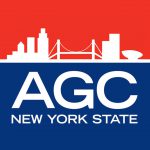On October 23, 2018, Thomas J. Hall presented at Grace Industries LLC/Haugland Energy Group LLC’s seminar entitled “Contractual Risk Transfer in New York,” in Plainview, New York.
published on October 23, 2018
On October 23, 2018, Thomas J. Hall presented at Grace Industries LLC/Haugland Energy Group LLC’s seminar entitled “Contractual Risk Transfer in New York,” in Plainview, New York.
published on October 23, 2018
We are pleased to welcome our newest valued client, Tokio Marine HCC.
published on October 05, 2018
We are pleased to welcome our newest valued client, Tokio Marine HCC.
published on October 05, 2018
On July 30 and 31, Stephen M. Cohen presented at E-J Electric Installation Co.’s 2018 Safety Seminar the program entitled “Best Practices for Accident Investigations,” in New York, New York.
published on August 06, 2018
On July 30 and 31, Stephen M. Cohen presented at E-J Electric Installation Co.’s 2018 Safety Seminar the program entitled “Best Practices for Accident Investigations,” in New York, New York.
published on August 06, 2018
Court Denies Plaintiff Summary Judgment on Labor Law §240(1) Claim Based on His Account of Accident in Physician’s Affidavit and Medical Records
published on July 26, 2018
Court Denies Plaintiff Summary Judgment on Labor Law §240(1) Claim Based on His Account of Accident in Physician’s Affidavit and Medical Records
published on July 26, 2018
In a decision dated July 20, 2018, the Hon. Lucindo Suarez denied plaintiff’s motion for partial summary judgment on his Labor Law §240(1)claim against our clients, LV Queens Group LLC and Artec Construction and Development Corp. The plaintiff, a Green Grounds Inc. laborer, working on the Borough Place Project in Woodside, New York, claims he fell 18 to 20 feet to the ground from a ladder that was placed on top of a scaffold. The fall was witnessed by his co-worker. In opposition to the plaintiff’s motion, the defendants submitted an affidavit from a physician’s assistant at Weill Cornell Medical Center along with medical records containing the plaintiff’s admission as recorded by the physician’s assistant. Plaintiff’s medical records from Elmhurst Hospital were also submitted. Based on the affidavit and medical records, the plaintiff reportedly stated the following: that he twisted his foot and fell, that he unknowingly stepped into a ditch and that he tripped on a pothole while walking in the street. In light of these statements, the defendants argued that there was a triable question of fact regarding the plaintiff’s account of the accident. The Court agreed and denied plaintiff’s motion.
Luis Fernandez v. LV Queens Group LLC et al., Index No. 302651/12 (Bronx Co. Sup. Ct., July 20, 2018)
Court Dismisses Plaintiff’s Complaint Against Contractor in Construction Accident Case
published on July 09, 2018
Court Dismisses Plaintiff’s Complaint Against Contractor in Construction Accident Case
published on July 09, 2018
In a decision dated July 9, 2018, the Hon. R. Bruce Cozzens, Jr. granted our client, Skanska USA Building Inc., summary judgment dismissing the plaintiff’s complaint in its entirety as a matter of law. The plaintiff commenced this action alleging personal injuries as the result of a trip and fall on a construction project. It is alleged that the defendant was negligent for allowing debris to be on the job site and for failing to properly illuminate the job site. Additionally, the plaintiff alleged violations of Labor Law §§200, 240 and 241(6). In support of its summary judgment motion, Skanska asserted that the plaintiff’s conduct was the sole proximate and superseding cause of his accident. It argued that, contrary to plaintiff’s claims, he was not walking through a passageway, but rather, chose to walk through a planter located under a stairway instead of walking around it. Further, the plaintiff did not oppose Skanska’s motion to the extent of dismissing the causes of action for common law negligence and violations of Labor Law §§240 and 241(6), with the exception of the alleged violations of Industrial Code Rules 23-1.7(e)(1) and (2) and 23-2.1(a)(1), claiming that the planter was actually a passageway. In reaching its decision to dismiss the complaint, the Court determined that the plaintiff’s choice to walk through a planter, rather than walk around it, was the sole and superseding proximate cause of his injuries.
Carl Fumia v. Skanska USA Building Inc., Index No. 606950/14 (Nassau Co. Sup. Ct., July 9, 2018)
Congratulations to John V. Fabiani who was awarded a defense verdict in the construction accident case entitled Scott Petersen v. Forest City Ratner Companies, LLC et al.
published on June 29, 2018
Congratulations to John V. Fabiani who was awarded a defense verdict in the construction accident case entitled Scott Petersen v. Forest City Ratner Companies, LLC et al.
published on June 29, 2018
Court Awards Summary Judgment to Owner and Contractor on Both Contractual and Common Law Indemnity Claims, Dismisses the Plaintiff’s Labor Law §200 and Common Law Negligence Claims and Denies the Plaintiff’s Motion for Summary Judgment on His Labor Law §241(6) Claims
published on June 28, 2018
In a decision dated June 29, 2018, the Hon. Robert A. Bruno granted our clients, Whole Foods Market Group, Inc. and Construction Management & Builders, Inc., summary judgment dismissing the plaintiff’s common law negligence and Labor Law §200 claims as well as all counterclaims against them. The Court also awarded our clients summary judgment on their contractual and common law indemnity claims against the third-party defendants. Furthermore, the Court denied the plaintiff’s cross-motion for summary judgment on his Labor Law §241(6) cause of action. At the time of the accident, the plaintiff was performing steel beam installation work as an employee of the second third-party defendant, Piermount Iron Works, Inc. He was seated on a horizontal steel beam, one end of which was attached to a vertical column, while the other end was held by a crane. While the plaintiff was seated on the beam, he attempted to attach the end held by the crane to a vertical column when the beam swung upward and the plaintiff struck another beam that was approximately five feet above him.
Whole Foods and Construction Management moved to dismiss the common law negligence and Labor Law §200 claims against them because the accident arose out of the means and methods by which the plaintiff was performing his work for his employer, Piermount. The Court agreed and dismissed the Labor common law negligence and Labor Law §200 claims against our clients. Moreover, the Court also dismissed all counterclaims against our clients because it determined that they were not negligent as a matter of law. Whole Foods and Construction Management also moved for summary judgment on their contractual indemnity claims against the plaintiff’s employer, Piermount, based on the contract which provided for indemnification for bodily injury to a Piermount employee “arising out of, resulting from, connected to or relating to the performance or non-performance of the Work.” The Court granted summary judgment the contractual indemnity claims against Piermount because the plaintiff’s injury arose out of or was related to the performance of his work. Whole Foods and Construction Management also moved for summary judgment on their common law indemnity claims against the crane operator, JV Trucking & Rigging, LLC. They argued that JV Trucking & Rigging, LLC was negligent because its crane operator continued to hoist the beam upward while the plaintiff was on it despite the fact that the crane operator was aware that there was already significant weight on the beam. In support of the common law indemnity claims, Whole Food and Construction Management submitted the affidavit of a crane operation and safety expert who opined that the rapid, sudden and jumping movement of the beam was due to a significant amount of preexisting tension and that the continued raising of the beam caused it to suddenly jump upward. Accordingly, the Court found that Whole Foods and Construction Management established prima facie negligence on the part of JV Trucking & Rigging, LLC and awarded our clients summary judgment on their common law indemnity claims.
Furthermore, the plaintiff served a cross-motion seeking summary judgment on his Labor Law §241(6) cause of action predicated upon Industrial Code Rules §23-2.3(a)(1) (structural steel members shall not be forced into place), §23-8.1(f)(5) (mobile cranes, tower cranes and derricks shall not hoist, lower, swing or travel while any person is located on the load or hook) and §23-8.1(f)(2) (there shall be no sudden acceleration or deceleration of the moving load unless required by emergency conditions). In opposition, Whole Foods and Construction Management argued that there was a question of fact regarding the plaintiff’s comparative negligence, i.e., the plaintiff disregarded instructions to pause the work and get off the beam and remained on the beam, continued trying to wedge the beam into place and improperly signaled the crane operator to lift the load. The Court denied the plaintiff’s cross-motion seeking summary judgment on his Labor Law §241(6) cause of action due to issues of fact regarding the plaintiff’s comparative negligence. Accordingly, our clients’ motion was granted in its entirety and the plaintiff’s cross-motion was denied in its entirety.
James Brooks v. Whole Foods et al., Index No. 600708/13 (Nassau Co. Sup. Ct., June 29, 2018)
First Department Affirms Lower Court’s Decision Which Denied Plaintiff Summary Judgment on Labor Law §240(1) Claim Against MTA and Contractor Based on Issue of Fact Regarding Plaintiff’s Account of Accident
published on June 22, 2018
First Department Affirms Lower Court’s Decision Which Denied Plaintiff Summary Judgment on Labor Law §240(1) Claim Against MTA and Contractor Based on Issue of Fact Regarding Plaintiff’s Account of Accident
published on June 22, 2018
In a decision dated June 12, 2018, the Appellate Division, First Department affirmed Justice Kathryn E. Freed’s May 16, 2017 decision which denied plaintiff’s motion for summary judgment pursuant to Labor Law §240(1) against our clients, the Metropolitan Transportation Authority and Judlau Contracting, Inc. In the lower court, the plaintiff previously moved to reargue and the motion was denied. The plaintiff, a Union Local 3 electrician working on the MTA’s Second Avenue Subway Construction Project, claims that he fell 20 feet into a shaft and landed on his back. A few days before the accident a bricklaying subcontractor allegedly removed a wood guardrail system from the perimeter of the shaft and built a new wall, leaving a portion of the shaft exposed. A 2×4 was allegedly wedged between the new wall and an old wall to create a guardrail in front of the shaft. The 2×4 was nailed into a vertical post (another 2×4) affixed to the old wall, but it was not secured in any way to the new wall. Plaintiff alleges that he leaned on the guardrail, it dislodged and he fell into the shaft. The fall was not witnessed; although, he was found a short while after by his partner who helped plaintiff climb out of the shaft.
In opposition to the plaintiff’s motion, the defendants submitted testimony from an expert radiologist and expert biomechanical engineer, and argued there is no evidence plaintiff sustained an acute trauma as he claimed and that there was a triable question of fact with regard to plaintiff’s account of the accident. In his affidavit, the defendants’ expert radiologist attested that there was no evidence of a traumatic injury to the body parts allegedly injured based on various radiological studies taken shortly after the accident (X-rays and MRIs were taken within one week of the alleged occurrence). He testified that there was significant evidence of degeneration to the allegedly injured body parts already present at the time of the accident and no evidence of any acute trauma. The biomechanical engineer testified that had plaintiff fallen 25 feet as he claimed (or even just 10 feet, which was the distance from the floor to the 4x4s he was found upon), he would have been expected to sustain severe traumatic injuries. The biomechanical engineer also opined that there was no evidence of any acute trauma that a fall from a height would have caused.
Aspromonte v. Judlau Contracting, Inc. et al., 162 A.D.3d 484, 78 N.Y.S.3d 334 (1st Dep’t 2018)
Court Dismisses Plaintiff’s Complaint As Against City Defendants in Construction Accident Case
published on May 22, 2018
Court Dismisses Plaintiff’s Complaint As Against City Defendants in Construction Accident Case
published on May 22, 2018
In a decision dated May 4, 2018, the Hon. Gerald Lebovits granted our clients, the City of New York and the New York City Department of Environmental Protection, summary judgment dismissing all of the plaintiff’s claims as against the City and the DEP and denying the plaintiff’s motion for summary judgment on his causes of action pursuant to Labor Law §§240(1) and 241(6). The plaintiff, a Local 638 steamfitter employed by Skanska Mechanical and Structural, Inc. was allegedly struck by an inadequately secured roller hanger pipe saddle in the neck, which fell from above. The incident allegedly occurred on October 2, 2011, while the plaintiff was working at the North River Sewage Treatment Plant located in Manhattan. Judge Lebovits determined that Labor Law §240(1) did not apply to the circumstances of this accident because the pipe saddle was part of the building’s permanent structure. The Court accepted our argument that the pipe saddle is not the type of safety device which is intended to protect workers from a gravity-related hazard, so the failure of the pipe saddle did not implicate the protections of the statute. In denying the plaintiff’s summary judgment motion, the Court accepted our argument that the failure of the tack welding (which caused the pipe saddle to fall) did not implicate the statute for the same reason. Regarding the plaintiff’s Labor Law §241(6) claim, the plaintiff only opposed the dismissal of two Industrial Code Rules. The Court held that Rule 23-1.7(a)(1) (“Every place where persons are required to work or pass that is normally exposed to falling material or objects shall be provided with suitable overhead protection…”) did not apply to the accident because, although there was falling debris from the demolition work, the plaintiff was not struck by this debris but by the pipe saddle that was not adequately tack welded, i.e., the pipe saddles were not the type of falling objects that persons were normally exposed to and for which protection was required. The Court held that Rule 23-3.2(b), which applies to the protection of adjacent structures during demolition, did not apply because the plaintiff was injured by the pipe saddle, not an adjacent structure. Finally, the Court dismissed the plaintiff’s causes of action for common law negligence and violation of Labor Law §200 because there was no evidence that the defendants had notice of the defective condition and the Court accepted our argument that insufficient tack welding constituted a latent defect which did not give rise to liability. The Court also noted that none of the defendants would be liable under the means and methods analysis because the defendants were not in charge of fall protection at the project.
Michael Djuric v. City of New York et al., Index No. 151057/12 (N.Y. Co. Sup. Ct., May 4, 2018)
Court Dismisses Third-Party Action Against Contractor-Employer
published on April 30, 2018
Court Dismisses Third-Party Action Against Contractor-Employer
published on April 30, 2018
In a decision dated February 27, 2018, Justice Darrell L. Gavrin of the Queens County Supreme Court granted our clients, third-party defendants Skanska USA Civil Northeast, Inc., E.C.C.O. III Enterprises, Inc., J.F. White Contracting Company, and those companies collectively doing business as SEW Construction, summary judgment dismissing the plaintiff’s complaint against them as a matter of law. The plaintiff claimed that he sustained injuries while employed by Skanska, one of the members of SEW, on a construction site owned by the New York City Department of Environmental Protection. The plaintiff attempted to step over a three-foot high concrete form he and his coworkers had created and twisted his ankle. The Court held SEW established that the plaintiff’s accident did not arise from the kind of elevation-related hazard covered by Labor Law §240, but rather arose from an ordinary danger of a construction site which further had no causal nexus stemming from a lack of prescribed safety devices, as required under §240. The Court similarly dismissed plaintiff’s claim under Labor Law §§200 and 241. The Court held the injuries claimed by plaintiff did not rise to the level of “grave injury” as prescribed by §241 and that under Workers Compensation Law §11, third-party common-law indemnification or contribution claims against employers are prohibited unless the employee has sustained a “grave injury”, or the claim is based upon a written contract provision. As there was no grave injury, and no contract containing such a provision was provided, the Court held that SEW had demonstrated its prima facie entitlement to judgment as a matter of law dismissing the common-law indemnity, contractual indemnity and contribution causes of action asserted against it.
Turner v. Arcadis U.S. Inc., et al. Index No. 702115/2012 (Queens Co. Sup. Ct., Feb. 27, 2018)








